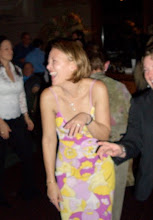Evelyn Waugh's sharp wit and keen insight into the peculiarities of society have made me a huge fan of his satires. Without losing those wonderful qualities, Brideshead Revisited is far more subtle - and displays far more nuanced writing - than Waugh's satirical works. It is a poetic portrait of English aristocracy, a highly personal examination of the Catholic church, and an insightful dive into personal relationships. It's a wonderful book.
Narrator and protagonist Charles Ryder met Sebastian Flyte while in his first year at Oxford, and he was quickly enamored. Sebastian was rich, handsome, charming, and a flamboyant homosexual who surrounded himself with other quirky characters. Having far outspent his allowance, Charles returns home to his father for the long summer vacation. When Charles hears that Sebastian has been injured, he joins him at Brideshead, Sebastian's family estate, for the remainder of the summer. The two develop a deep friendship, with a romantic relationship hinted at as well.
Over the ensuing years, Charles spends a great deal of his vacation time with Sebastian at Brideshead, effectively becoming a member of the Marchmain family. Sebastian, however, has begun a slide into alcohol abuse, and becomes increasingly withdrawn and difficult. During one particularly trying episode, Charles funds one of Sebastian's binges, which gets Charles ousted from his comfortable and beloved position. Sebastian's descent ultimately finds him living as a charity case in a north African monastery.
Nearly ten years later, Charles, now married and a successful artist, encounters Sebastian's sister Julia on a cross-Atlantic cruise. The two pick up their friendship, which rapidly evolves into a romance. Charles moves into Brideshead to live with Julia, and they both begin the process of divorcing so that they can legitimize their relationship.
When Julia's father unexpectedly returns to Brideshead to die, the entire family struggles with their Catholicism and its influence over their own lives. The most significant theme in the novel is, in fact, the Catholic church and the implications of living without Christianity. In contrast to more typical examinations of religion, it is the believers amongst the Marchmain family who poke holes in Charles's atheism. A number of characters experience divine grace and reconciliation with the Church, and many undergo some level of conversion to faith.
There are trademark Waugh moments of hilarity, such as Anthony Blanche's description of "absurd women in the sort of hats they should be made to eat," or Charles's father asking, "Was it her little moustache you objected to or her very large feet?" I've not known Waugh to disappoint, and Brideshead Revisted may be his very best.
Next up for me: Pulitzer Prize-winning The Brief Wondrous Life of Oscar Wao by Junot Diaz.
Friday, April 3, 2009
Brideshead Revisited
Labels:
book club,
highly recommended,
literature
Subscribe to:
Post Comments (Atom)


No comments:
Post a Comment